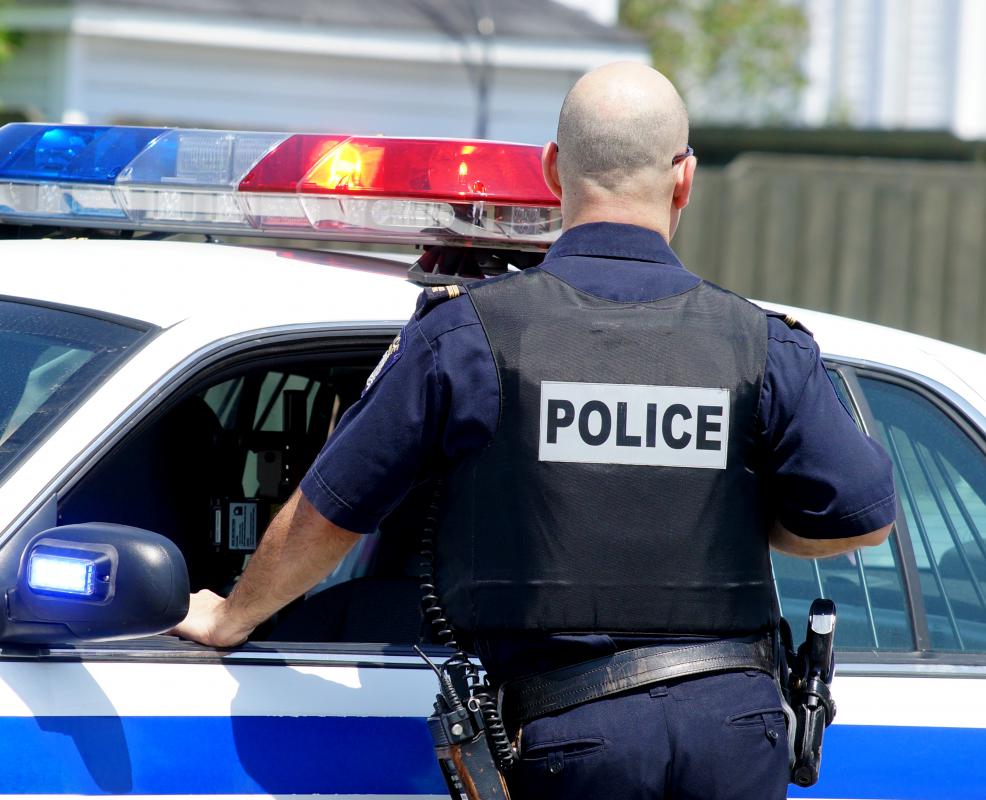At WiseGEEK, we're committed to delivering accurate, trustworthy information. Our expert-authored content is rigorously fact-checked and sourced from credible authorities. Discover how we uphold the highest standards in providing you with reliable knowledge.
What are DUI Checkpoints?
DUI checkpoints are roadblocks established by law enforcement to check for drivers who are drinking and driving. Driving under the influence (DUI) and driving while intoxicated (DWI) are against the law in many regions of the world and law enforcement take a proactive stance on enforcing these laws to reduce the risk of injuries and deaths on the road. Also known as sobriety checkpoints, DUI checkpoints are most commonly seen on holidays, when there is an increased concern that people may drink and drive.
At a DUI checkpoint, police officers block the road with vehicles and other barriers. Before being allowed to go through the checkpoint, drivers must have a brief conversation with an officer. The officer asks a series of questions designed to screen the driver while also observing the driver's behavior for signs of intoxication. If a driver exhibits evidence of drinking alcohol, the police can run a more thorough screening, including sobriety tests.

Police officers may use DUI checkpoints for public outreach as well. Drivers can be handed informational pamphlets about drunk driving and other issues, and sometimes organizations pair with the police to hand out things like free calling cards to allow people to call for sober rides without incurring charges. Checkpoints are scheduled in advance and sometimes they are announced, while at other times police may attempt to conceal the checkpoint until it is being set up to prevent drivers from taking steps to avoid it.

DUI checkpoints are designed to serve several purposes. In the first place, they provide police with an opportunity to intercept drunk drivers before they get out on the road and cause injuries, damages, or deaths. In the second place, they can be a deterrent tool. Citizens aware of checkpoints may be more likely to use a designated driver or to make arrangements to stay over if they are drinking. These dual effects can reduce the incidence of drunk driving and make the roads safer.

The legality of DUI checkpoints is a topic of debate in some regions. In the United States, where personal privacy standards are high, some people have argued that checkpoints violate the Fourth Amendment. Others believe the safety needs trump the intrusiveness, and if checkpoints are conducted consistently, they do not constitute a violation of Constitutional rights. Checkpoints have stood up to challenges in the Supreme Court of the United States although it is possible they may be challenged again and ruled unconstitutional with a different configuration of justices.
AS FEATURED ON:
AS FEATURED ON:














Discussion Comments
@SurfNTurf- I understand the motivation behind the local DUI checkpoints but I wonder how effective they are because they have to announce where the DUI checkpoint locations are going to be.
Since it is not a surprise doesn’t this defeat the purpose? I think that people that drink while driving will not go near these routes, instead you will get a lot of people that are traveling with their families and they will be inconvenienced.
I understand that police officers want everyone to get the message that you can’t drink and drive, but can’t there be a different way?
I just want to say that I am glad that they have DUI sobriety checkpoints because it does save lives. It might be inconvenient for some people if they get stopped, but it reinforces the importance of not drinking and driving.
This alone is worth it because if these DUI checkpoint locations save just one life than it is worth it. I don’t mind if I get pulled over because I never drink and drive, so I have nothing to hide. I am glad that they are out there because I am sure that some people that drink and drive will continue to do so despite the DUI checkpoints.
Post your comments